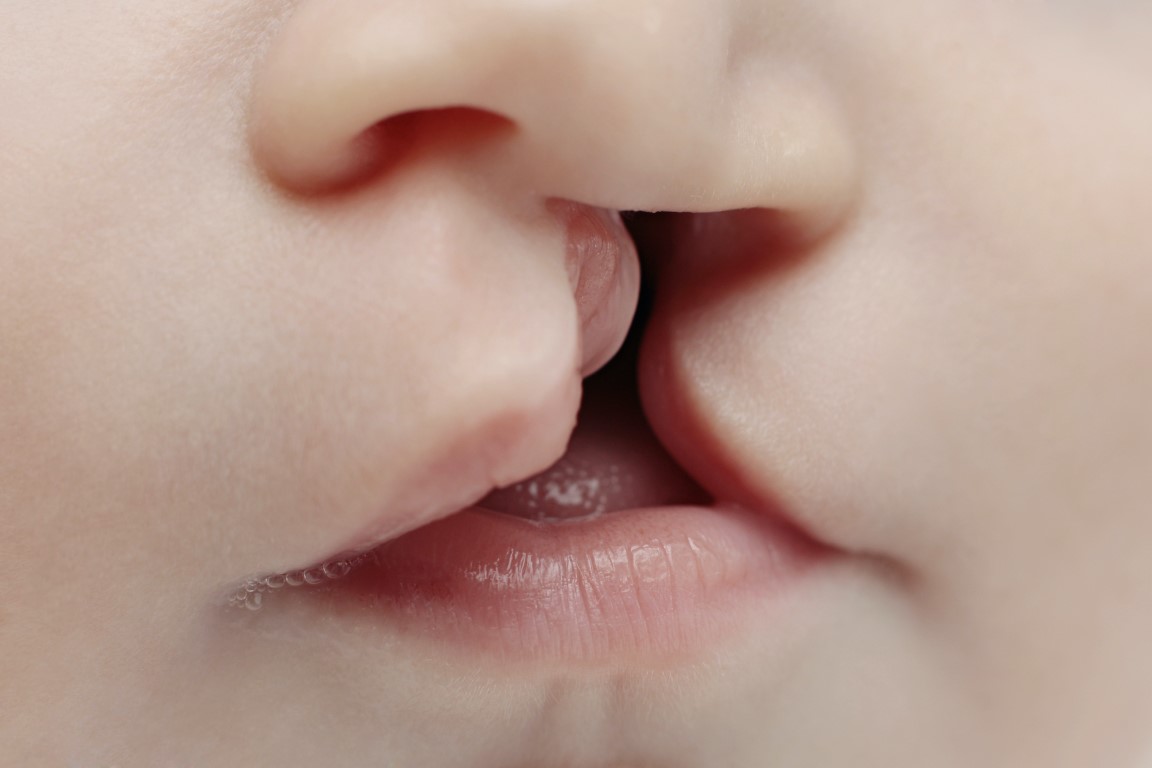Cleft lip and palate is a fairly common birth defect around the world. In Canada, the prevalence of cleft lip with or without a cleft palate between 1998 to 2007 was 0.82 per 1000 live births. For cleft palate alone it was 0.58 per 1000 live births. Fortunately, cleft lip and cleft palate, which both come under the term orofacial clefts, are correctible with surgery and therapy.
What is Cleft Lip and Palate?
In cleft lip, there’s an opening or a split in the baby’s lip, while in cleft palate there’s an opening in the roof of the mouth. They form before birth when structures called the medial nasal processes and the maxillary prominence do not close up before birth. The uvula, which is the bit of tissue that hangs down at the back of the mouth, is also split.
The split in the baby’s palate causes their mouth and nose to communicate with each other in an unnatural way. This is called a velopharyngeal insufficiency, or VPI and affects the quality of the voice when the child begins to speak.
Cleft lip and palate can be isolated problems where the baby is otherwise normal. They can also be part of other syndromes or genetic diseases. Among the disorders that involve cleft lip or cleft palate are Van der Woude syndrome, Stickler syndrome, Patau syndrome and Treacher Collins syndrome.
What are the Causes of Cleft Lip and Palate?
Cleft lip and palate can be caused due to defects in the genes involved in the development of the middle of the face as the fetus matures. Scientists believe that about 20 to 50 percent of cleft lips or palates are due to genetic mutations.
Other causes of cleft lip or palate are complicated and involve the environment or an interplay between genes and the environment. The problem begins very early in the pregnancy as cells arrange themselves to form the baby’s facial features.
Some scientists believe that the baby is at higher risk for cleft lip or palate if their mother smoked during her pregnancy because smoking starves the baby of oxygen. Orofacial clefts may also be related to alcoholism and exposure to street drugs, certain prescription drugs, lead, pesticides and even retinoids, which are often used in regular skin care. Women who are diabetic or obese also have a higher risk to have a baby with an orofacial cleft.
What are the Symptoms of Cleft Lip and Palate?
The symptoms of cleft lip and palate are a split in the baby’s lip and a hole in the palate that can be seen immediately after birth. The split can affect one side or both sides of the face, and sometimes the cleft palate doesn’t affect the look of the baby’s face. Once in a while, the baby is born with a cleft in the soft palate, which is at the back of the mouth and is hidden by the lining of the mouth. The parent will eventually notice that the baby has a hard time feeding and swallowing. Sometimes liquids or food come out of the nose. When the child begins to speak, their voice has a nasal tone, and they have frequent ear infections or can be hearing impaired.
Children who are born with orofacial clefts also tend to have dental problems if the cleft penetrates their gums. They can visit the Upper Hunt Club Dental Centre in Ottawa for treatment. If their condition isn’t corrected, they can suffer medical, social and behavioral problems.
Diagnosis for Cleft Lip and Palate
Cleft lip and cleft palate can be diagnosed as soon as the baby is born. Sometimes the problem can be detected during pregnancy using ultrasound.
Treatment for Cleft Lip and Palate
A doctor will recommend that a baby who is born with an obvious cleft lip and/or cleft palate start treatment right away. The child may need to have more than one surgery starting when they are an infant and continuing into their teen years. Cleft lip surgery is usually done when the baby is three to six months old, and cleft palate repair should be done before the child is a year old. Over the years they may also have cosmetic and other surgeries and be fitted with orthodontic devices. If you are in need of any dental services, visit us at the Upper Hunt Club Dental Centre in Ottawa. Contact us today to schedule an appointment!













